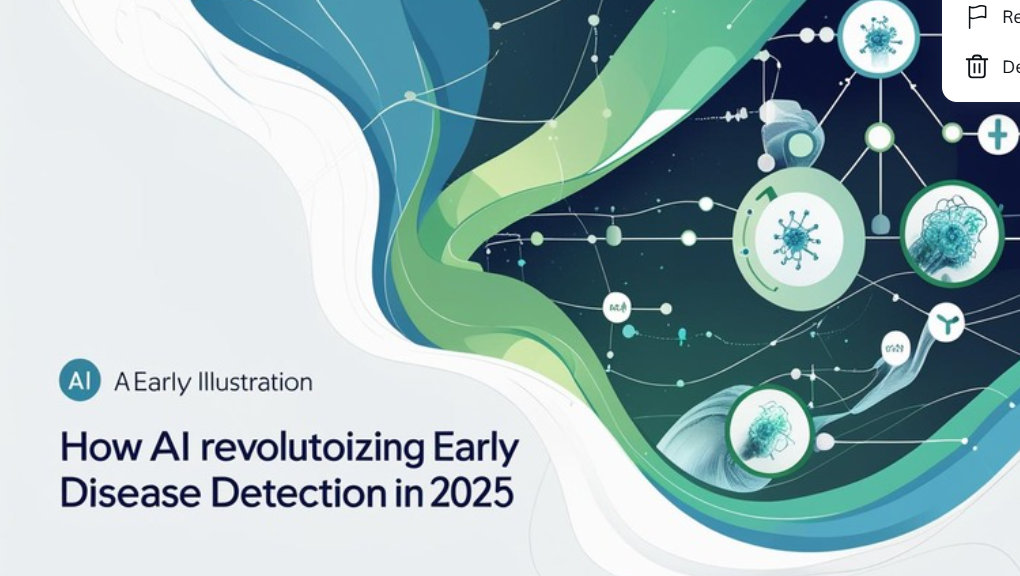How AI is Revolutionizing Early Disease Detection in 2025
In 2025, Artificial Intelligence (AI) is no longer just a technological buzzword—it is a life-saving innovation. The healthcare industry is experiencing a major transformation as AI tools are being used to detect diseases earlier, faster, and more accurately than ever before. From cancer to heart conditions, AI is quickly becoming one of the most powerful tools in modern medicine.
Why Early Disease Detection Matters
Detecting diseases at an early stage can:
- Save lives by enabling faster treatment.
- Lower healthcare costs by avoiding advanced treatments.
- Prevent diseases from becoming severe or untreatable.
Traditional diagnosis methods are often slow, expensive, or miss early warning signs. This is where AI brings a revolutionary change.
How AI Works in Disease Detection
AI uses machine learning algorithms and data analysis to process large amounts of medical data within seconds. Some of the key applications include:
- Medical Imaging
- AI-powered systems analyze X-rays, MRIs, and CT scans with remarkable speed.
- They can identify early signs of tumors, fractures, or infections that may be missed by humans.
- Wearable Devices
- Smartwatches and health trackers use AI to monitor heart rate, blood oxygen, and detect irregular heartbeats.
- These devices send early alerts that encourage patients to seek medical help before conditions worsen.
- Predictive Analytics
- AI evaluates patient history, lifestyle, and genetics to predict risks for diseases like diabetes, heart attacks, or strokes.
- Doctors use these insights to recommend preventive care.
Real-Life Examples in 2025
- Google’s AI models now detect breast cancer from mammograms with accuracy levels higher than many radiologists.
- AI-powered health startups in India are providing affordable diagnostic tools in rural areas, giving millions access to early detection.
- AI health assistants and chatbots provide instant medical guidance, reducing unnecessary hospital visits.
Challenges in AI-Powered Healthcare
While AI is proving to be revolutionary, it comes with certain challenges:
- Data privacy – Protecting sensitive patient records is essential.
- Bias in algorithms – AI must be trained on diverse datasets to avoid errors.
- Trust and adoption – Both doctors and patients need confidence in AI-driven results.
The Future of AI in Healthcare
By 2030, AI is expected to become an integral part of every hospital and clinic. It will not only detect diseases earlier but also help in preventing illnesses before they develop.
Imagine a future where your wearable device warns you about a potential disease risk months before symptoms appear. That future is rapidly approaching.
Conclusion
AI is transforming healthcare in 2025 by revolutionizing early disease detection. From wearable devices to advanced hospital diagnostic systems, AI is making healthcare faster, smarter, and more accessible. Although challenges remain, one thing is clear: the future of disease detection will be driven by Artificial Intelligence.

